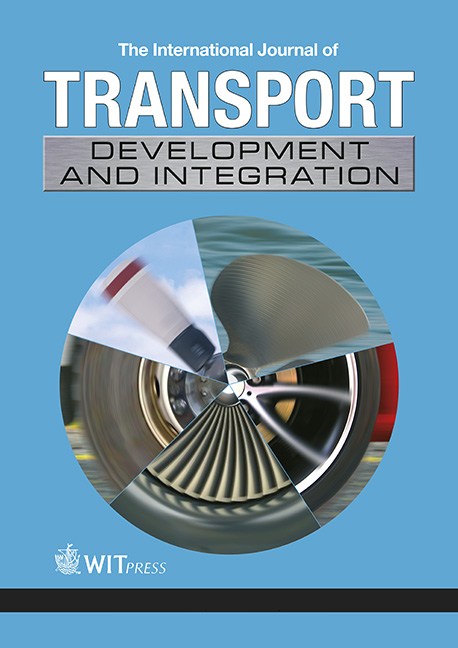A general method of braking process simulation for flexible marshalling EMUs
Price
Free (open access)
Volume
Volume 2 (2018), Issue 4
Pages
8
Page Range
353 - 361
Paper DOI
10.2495/TDI-V2-N4-353-361
Copyright
WIT Press
Author(s)
Tianhe Ma, Mengling Wu & Chun Tian
Abstract
Electropneumatic brake systems are widely used on electric multiple units (EMUs) for high-speed railway and urban rail transit. The common marshalling of the EMUs varies from four to eight cars for urban mass transit and even 16 cars for high-speed way. Traditional methods for braking calculation, which are only suitable for unit-fixed and marshalling-fixed EMUs, are not able to deal with complicated braking process and various marshalling. In this article, a general method for flexible marshalling train braking process simulation is proposed. This method deals with an EMU consisting of 1–24 cars by dividing it into one to eight units and each unit has one to three cars. During braking of EMUs, braking force is calculated according to brake level and velocity, and then managed and applied according to units’ type and distributing principle. With this method, braking deceleration, speed, distance and electric braking force, pneumatic braking force and brake cylinder pressure of each car at any time during the whole braking process can be all presented. Simulation covers braking instruction transmission, braking force calculation and management at train level, electric pneumatic blending braking force distribution at unit level and braking force application at vehicle level. Simulation has been validated by field test results. Finally, an instance of simulation for a custom marshalling EMU is presented. The method can not only meet the needs of engineers and technicians to do brake calculation and braking performance validation of the existing fixed marshalling EMUs, but also provide reference for new design of novel flexible marshalling EMUs.
Keywords
braking process, electric pneumatic blending brake, EMUs, flexible marshalling




